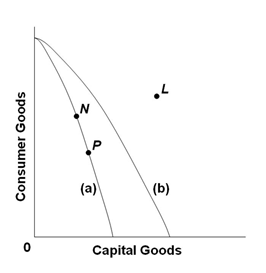The principle of comparative advantage asserts that
a. not all countries can benefit from trade with other countries.
b. the world price of a good will prevail in all countries, regardless of whether those countries allow international trade in that good.
c. countries can become better off by exporting goods, but they cannot become better off by importing goods.
d. countries can become better off by specializing in what they do best.
d
You might also like to view...
If consumers' surplus is $30 and the price paid for the good is $50, then the maximum price a buyer is willing and able to pay for the good is
A) $80. B) $30. C) $50. D) $20. E) There is not enough information to answer the question.
One way the government can boost the economy out of a recession is:
A. with public announcements telling the public to save their money. B. by increasing government spending. C. by setting price ceilings on most goods so people can afford them. D. None of these will help an economy in recession.
Refer to the production possibilities curves below. Curve (a) is the current curve for the economy. Focusing on curve (a), point N suggests that the economy currently produces:

A. More goods for the future than at point P
B. Less goods for the future than at point P
C. Less goods for the present than at point P
D. A combination of output that is less than its potential
If all disposable income is spent, personal saving will equal zero.
Answer the following statement true (T) or false (F)